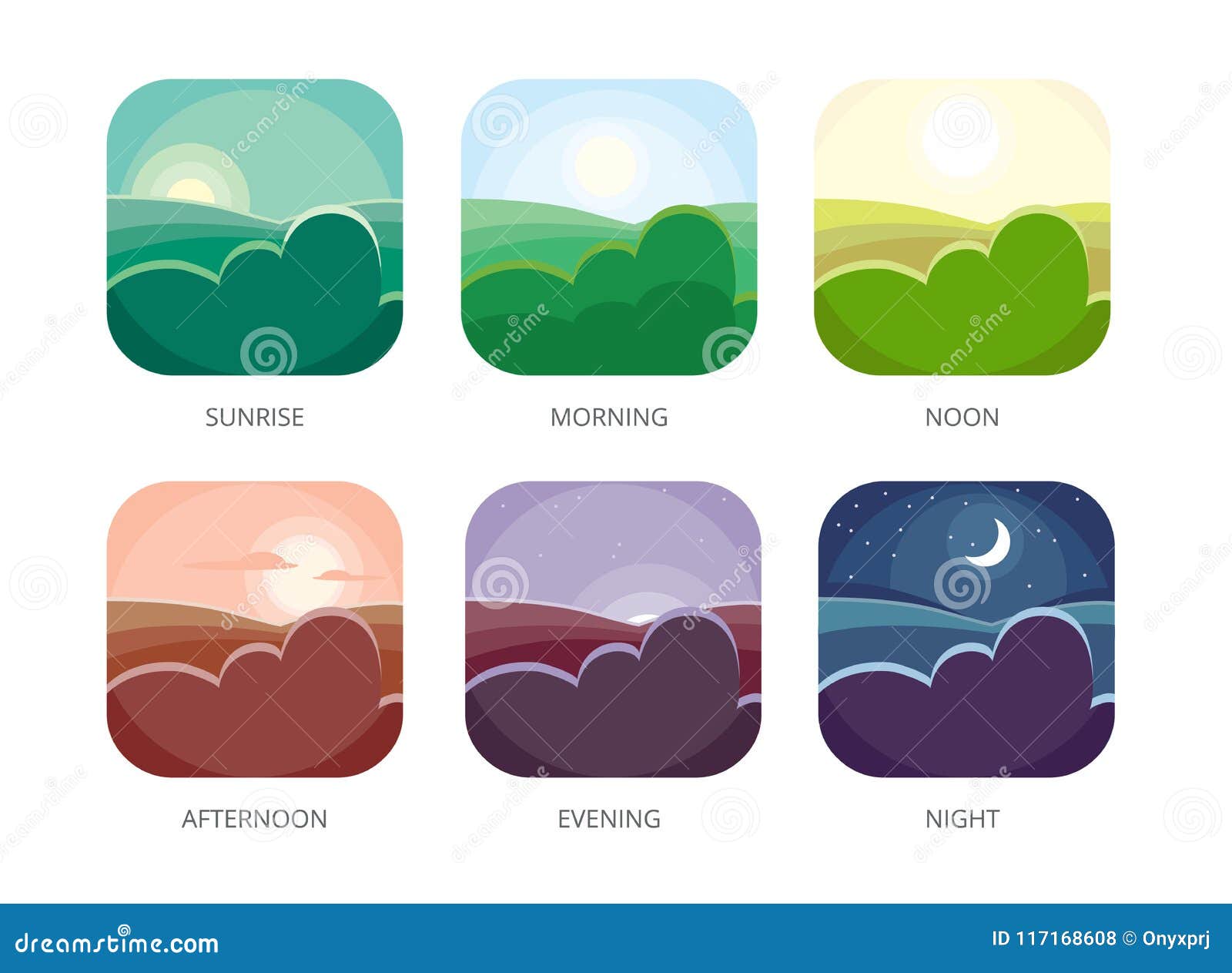Is it truly just a matter of semantics, or does the language we use to describe time subtly shape our perception of the day? The nuances of "early morning," "late morning," and their counterparts reveal a fascinating interplay between grammar, cultural norms, and the very fabric of our daily experience.
The concept of time, though seemingly rigid, is fluid, its boundaries blurred by our individual habits and societal conventions. What one culture deems "lunchtime" at 11:00 a.m., another might consider the tail end of the morning. Consider the simple act of rising: "Maria stood up already in the morning, but Peter only in the forenoon." This translation highlights a temporal distinction, where "morgen" (morning) signifies an earlier start than "vormittag" (forenoon), which typically encompasses the hours between approximately 9:00 a.m. and 12:00 p.m. This distinction isn't merely academic; it informs how we structure our day, when we schedule appointments, and even how we define the rhythm of our meals.
The very architecture of a day is carved into segments. As the sun climbs toward its zenith, approximately between noon and 2:00 p.m., it paints the "afternoon," the hottest and brightest period. Following this, the "late afternoon," from around 3:00 p.m. to 4:00 p.m., witnesses the sun's descent, with a softening of light and a subtle cooling. The evening then arrives, bringing with it the promise of respite, with the night period bookending it, twice in one day.
The vocabulary associated with meals further complicates matters. "Morning tea" in one location could be an entirely different meal elsewhere. In Australia, the evening meal is called "dinner" or "tea," while "supper" denotes a late-night snack. This variance shows how cultural influences shape our perception of time and associated activities.
Now, let's examine the nuances of the phrases.
| Time of Day | Definition | Associated Activities | Examples |
|---|---|---|---|
| Early Morning | The initial hours of the day when most people are beginning their day. | Workout and prep for the day, sunrise rituals, quiet reflection. | "She left early this morning." |
| Morning | The time period from midnight to midday. | Work, meetings, running errands. | "This morning I have an appointment." |
| Late Morning | The latter part of the morning, typically between 10:00 a.m. and noon. | Finishing tasks, transitioning to lunch. | "By late morning, the fog had dissipated." |
| Afternoon | The time from midday (noon) to evening (approximately 18:00 hours). | Continued work, leisure activities. | "On ~ afternoon implies that the afternoon is a single point in time." |
| Late Afternoon | The end of the afternoon (approx. 3-4 pm). | Wind down after the day. | "The sun begins to descend and it is not as bright or hot as at 12pm, around 3pm to 4pm." |
| Evening | The time from the end of the afternoon to midnight (approximately 18:00 hours to 00:00 hours). | Dinner, relaxation, evening activities. | "In australia, we would call the evening meal dinner or tea." |
| Late Evening | The latter part of the evening, when some people are likely in bed. | Preparing for bed, winding down. | "Late on monday night is the standard way to say it." |
| Night | The hours of darkness, or when most people are in bed. | Sleeping. | "At night = during the hours of darkness, or when most people are in bed." |
Grammatical conventions also play a role. Americans generally say "in the morning" rather than "on morning" because of colloquial language. While "on morning" might be grammatically acceptable, it appears archaic to Americans. Conversely, the phrase "call me in early afternoon" is acceptable in India, but not in the United States.
The choice of prepositions further demonstrates this point. While "on" can be used to denote a single point in time, "in" provides a wider temporal context. Thus, "on the morning of May 10" refers to the entire morning, while "in the early morning of May 10" emphasizes the beginning of that timeframe, and "in the late morning of May 10" highlights its conclusion.
The subtleties of English usage are worth exploring. The use of "late" requires a distinct approach. For instance, it's standard to say "late on Monday night," as "late" does not precisely identify a temporal period, so "on" is deemed incorrect.
The phrases related to sleeping reveal another layer of complexities. Oversleeping, or sleeping later than usual, is distinct from going to bed late at night. Waking up late has nothing to do with going to bed late.
In the realm of media and news, "Late" is a website, and "Late Morning" a song by Michelle Moeller, released on April 5, 2024. These instances show how the phrase is an integral element of modern language and the creative arts.
The very idea of the "early bird" is inspired by an age-old idiom, "The early bird catches the worm". To truly enjoy a beautiful morning, a sense of self, and of peace is required.
In summary, the English language has many varied ways of capturing and expressing the multifaceted nature of the day. From the early rays of the sun to the shadows of the night, our choice of words reflects not only our awareness of time but also our cultural background and individual experiences.



Detail Author:
- Name : Delores Schuster II
- Username : macie.luettgen
- Email : jayme.harber@jenkins.com
- Birthdate : 2006-05-10
- Address : 914 Walter Ramp Heathcoteside, AR 81933
- Phone : 936-585-1005
- Company : Erdman Ltd
- Job : Clinical Laboratory Technician
- Bio : Ea ab nobis cupiditate quia deserunt ex magni. Ut molestiae impedit neque quas. Nemo illum laboriosam aspernatur rerum. Sunt fuga molestiae ducimus atque est blanditiis.
Socials
tiktok:
- url : https://tiktok.com/@caterina3103
- username : caterina3103
- bio : Praesentium maxime qui praesentium aut voluptatem.
- followers : 1713
- following : 2074
twitter:
- url : https://twitter.com/caterinareynolds
- username : caterinareynolds
- bio : Dolorem nemo assumenda sed illo consequatur omnis. Magni illum aliquid enim velit ullam.
- followers : 924
- following : 107
instagram:
- url : https://instagram.com/reynoldsc
- username : reynoldsc
- bio : Sunt molestias assumenda est qui animi enim. Minus autem non eos. Sit dolor odit porro.
- followers : 1789
- following : 761